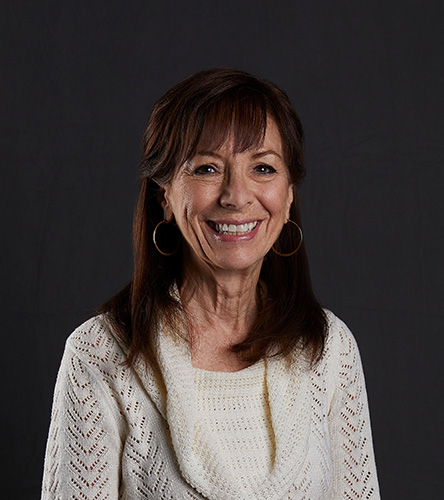BROOKLYN
245 Clinton Ave., Brooklyn, NY 11205
Main: 718.940.5300
Admissions: 718.940.5800
Fax: 718.940.5680
LONG ISLAND
155 W. Roe Blvd., Patchogue, NY 11772
Main: 631.687.5100
Admissions: 631.687.4500
Fax: 631.687.4539

Professor, Assessment Coordinator
Child Study
LI
Infant Toddler Early Childhood Special Education
LI
Ph.D., Psychology, SUNY Stony Brook, 1994
M.S., Special Education, Hofstra University, 1971
B.A., Psychology, Catholic University of America, 1969
I've always had one foot in the field of psychology and the other in education. Before starting at St. Joseph's University, New York, I taught for seven years in a self-contained special education class at BOCES, working with children ages 5 to 15. After I began teaching full-time at the University in 1982, I went back to school part time to obtain a doctorate in developmental psychology. In the next 11 years, I discovered the excitement of doing research and became immersed in a fascinating project funded by the National Institutes of Mental Health that aimed to explain the ways in which young adults' childhood experiences with their parents affect their later romantic relationships. (Somehow I also managed to raise three sons, who all seem to have forgiven me for my frequent distraction during those years.)
When the Child Study Department started a master's program in early childhood special education in the late '90s, I switched back to a stronger emphasis on education and began conducting developmental evaluations of children under the age of three who might qualify for early intervention services. The several hundred children and families with whom I interacted over the next 10 years taught me much about the challenges and strengths of parents of children with special needs and how teachers can best support those families.
Assessment has been a key focus of my professional life, whether working with children and families; teaching St. Joseph's students how to use assessment to benefit children — or in my role as assistant to the provost — helping St. Joseph's faculty and administrators clarify their expectations for students and provide evidence of student mastery of our institutional goals. Since 2000, I've tried to help improve the quality of commercially available tests by contributing regular reviews to the Buros Institute. Their Mental Measurement Yearbooks serve as a much-needed source of unbiased evaluations of new or revised educational and psychological tests.
Assessing infants and toddlers, as well as school-aged children
Assessing student learning and institutional effectiveness in higher education
Attachment theory
Early intervention
Social and emotional development of children
Crowell, J. A., O'Connor, E., Wollmers (Owens), G., Sprafkin, J., & Rao, U. (1992). Mothers' conceptualizations of parent-child relationships: Relation to mother-child interaction and child behavior problems. Development and Psychopa¬thology, 3, 431-444.
Owens, G., Crowell, J. A., Pan, H., Treboux, D., & O'Connor, E. (1995). The prototype hypothesis and the origins of attachment working models: Adult relationships with parents and romantic partners. In E. Waters, B. Vaughn, G. Posada, & K. Kondo-Ikemura (Eds.), Caregiving, cultural, and cognitive perspectives on secure-base behavior and working models: New growing points of attachment theory and research. Monographs of the Society for Research in Child Development, 60(2-3, Serial No. 244), 216-225.
Multiple test reviews in the Buros Institute's Mental Measurement Yearbooks, including the Scale for Assessing Emotional Disturbance (2001), Group Reading Test (2001), Comprehensive Receptive-Expressive Vocabulary Test (2003), Social Problem Solving Inventory (2005), Dyscalculia Screener (2005), Greenspan Social-Emotional Growth Chart (2007), Bracken Basic Concepts Scale (2010), Early Language and Literacy Classroom Observation Tool, K-3 (2013).
Get Social
Get Social